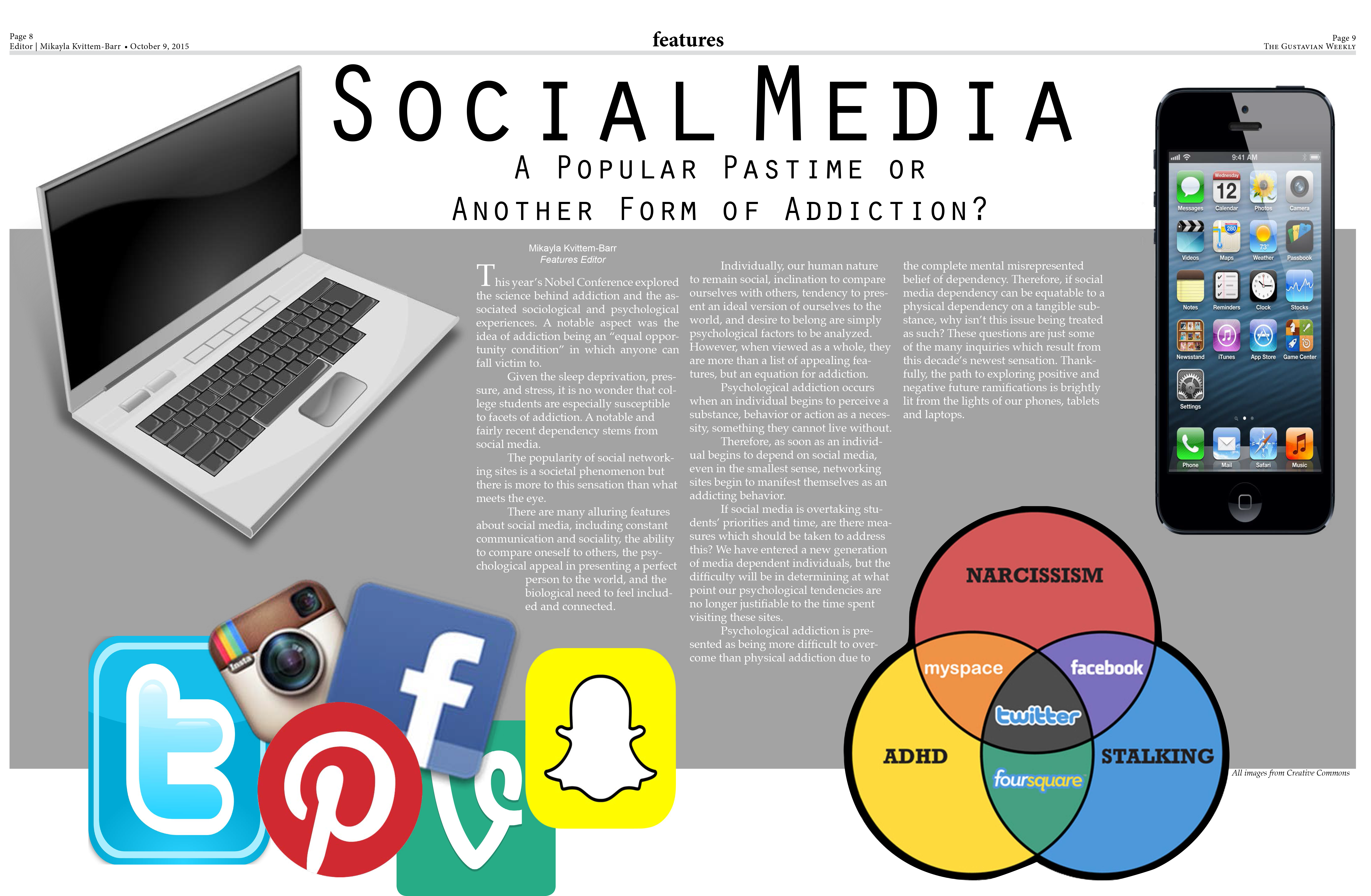This year’s Nobel Conference explored the science behind addiction and the associated sociological and psychological experiences. A notable aspect was the idea of addiction being an “equal opportunity condition” in which anyone can fall victim to.
Given the sleep deprivation, pressure, and stress, it is no wonder that college students are especially susceptible to facets of addiction. A notable and fairly recent dependency stems from social media.
The popularity of social networking sites is a societal phenomenon but there is more to this sensation than what meets the eye.
There are many alluring features about social media, including constant communication and sociality, the ability to compare oneself to others, the psychological appeal in presenting a perfect person to the world, and the biological need to feel included and connected.
Individually, our human nature to remain social, inclination to compare ourselves with others, tendency to present an ideal version of ourselves to the world, and desire to belong are simply psychological factors to be analyzed. However, when viewed as a whole, they are more than a list of appealing features, but an equation for addiction.
Psychological addiction occurs when an individual begins to perceive a substance, behavior or action as a necessity, something they cannot live without.
Therefore, as soon as an individual begins to depend on social media, even in the smallest sense, networking sites begin to manifest themselves as an addicting behavior.
If social media is overtaking students’ priorities and time, are there measures which should be taken to address this? We have entered a new generation of media dependent individuals, but the difficulty will be in determining at what point our psychological tendencies are no longer justifiable to the time spent visiting these sites.
Psychological addiction is presented as being more difficult to overcome than physical addiction due to the complete mental misrepresented belief of dependency. Therefore, if social media dependency can be equatable to a physical dependency on a tangible substance, why isn’t this issue being treated as such? These questions are just some of the many inquiries which result from this decade’s newest sensation. Thankfully, the path to exploring positive and negative future ramifications is brightly lit from the lights of our phones, tablets and laptops.
